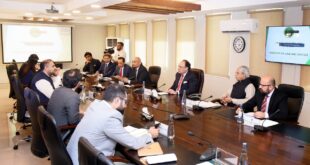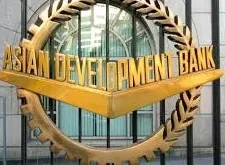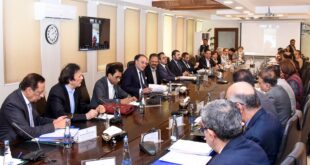
Aftab Maken
ISLAMABAD
Pakistan’s financial landscape is set for a significant overhaul as Federal Minister for Finance and Revenue, Senator Muhammad Aurangzeb, champions a multi-pronged strategy focusing on digitalization, robust industry collaboration, and innovative funding for social upliftment.
In a series of high-level meetings on Tuesday, May 27th, the Minister laid out a clear vision for a more modern, inclusive, and resilient Pakistani economy.
Towards a Cash-Lite Pakistan
A key priority for Senator Aurangzeb is weaning the economy off its heavy reliance on cash. Chairing a crucial meeting at the Finance Division, he brought together top minds from commercial banks, development finance institutions (DFIs), regulatory bodies, and investment circles. Their collective task: to map out how Pakistan can rapidly embrace digital payments and bring more citizens into the formal financial fold.
The committee, personally established by the Minister, put forward several ideas. These included making digital financial services more widely available, ensuring different payment systems can “talk” to each other seamlessly – particularly through the Raast instant payment system – and making digital transactions cheaper and more appealing than handling cash.
“There must be a level playing field between cash and digital payments,” Senator Aurangzeb firmly stated. He stressed that lowering transaction costs and improving the digital backbone are vital for small businesses and communities often left behind. For the Minister, digitalization isn’t just a fancy policy; it’s a fundamental requirement for Pakistan’s long-term financial health and ensuring everyone benefits from economic growth. He has tasked the committee with delivering a clear, time-bound action plan.
Steel Sector: “Every Sector Must Play Its Part”
The Minister also sat down with leaders from the Pakistan Association of Large Steel Producers (PALSP), including Patron-in-Chief Mr. Abbas Akbar Ali. The steel magnates voiced their industry’s struggles, pointing to high energy bills, unpredictable regulations, and the tax load carried by businesses that follow the rules.
Acknowledging their concerns, Senator Aurangzeb highlighted the steel sector’s critical contribution to building the nation’s infrastructure and creating jobs. However, he also emphasized a broader message: “Every sector has to play its role in stabilising and growing the economy.” This includes widening the tax net and bringing more of the informal, undocumented economy into the formal system. He assured the steel producers their input would be valuable for upcoming budget discussions and promised ongoing dialogue to ensure policies are well-aligned with industry needs.
Ceramics: A Local Success Story with Global Appeal
A more upbeat note came from a meeting with the All Pakistan Ceramic Tiles Manufacturers Association (APCTMA), led by Mr. Abdul Rehman Talat of Orient Ceramica. The ceramics industry showcased a remarkable transformation. They proudly reported that 96% of their raw materials are now sourced from within Pakistan, a stark contrast to their previous dependence on imports.
This shift has powered significant growth, attracting over Rs. 100 billion in investment, with a hefty 60% coming as foreign direct investment, primarily from China. The Minister lauded the sector’s success in replacing imports and achieving high manufacturing standards. Discussions also covered reforms in the energy sector and the government’s commitment to making it easier for businesses to operate and invest in Pakistan. Senator Aurangzeb reiterated his stance on tax fairness, stating the government aims to reduce the burden on sectors already complying with tax laws, focusing instead on transparency and broader inclusion.
Smart Spending: Funding Social Impact Based on Results
In another significant engagement, Senator Aurangzeb reviewed the progress of “outcome-based financing” (OBF). This innovative approach aims to tie investments directly to measurable social results. The meeting followed a major workshop organized by the Ministry of Finance with partners Karandaaz Pakistan and the Pakistan Banks Association.
A Task Force presented a Social Impact Financing (SIF) Framework, designed to align with the global Sustainable Development Goals (SDGs). This framework proposes funding development projects where payments are linked to achieving pre-agreed results. Five pilot projects were outlined, targeting critical areas like poverty reduction, agricultural improvement, healthcare advancements, and skills training for the workforce.
“Outcome-based financing is a shift toward transparency and accountability,” Senator Aurangzeb observed. He underscored the need to attract private investment to tackle national development challenges and called for a stronger link between economic activities and practical vocational education. Concluding the session, he instructed the Task Force to finalize its recommendations for submission to the Prime Minister, paving the way for policy adoption and the rollout of these pilot initiatives.
 BeNewz
BeNewz




